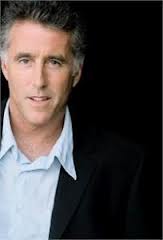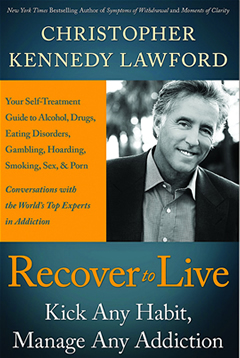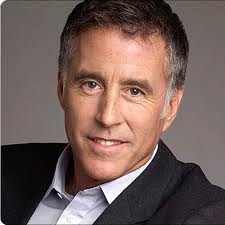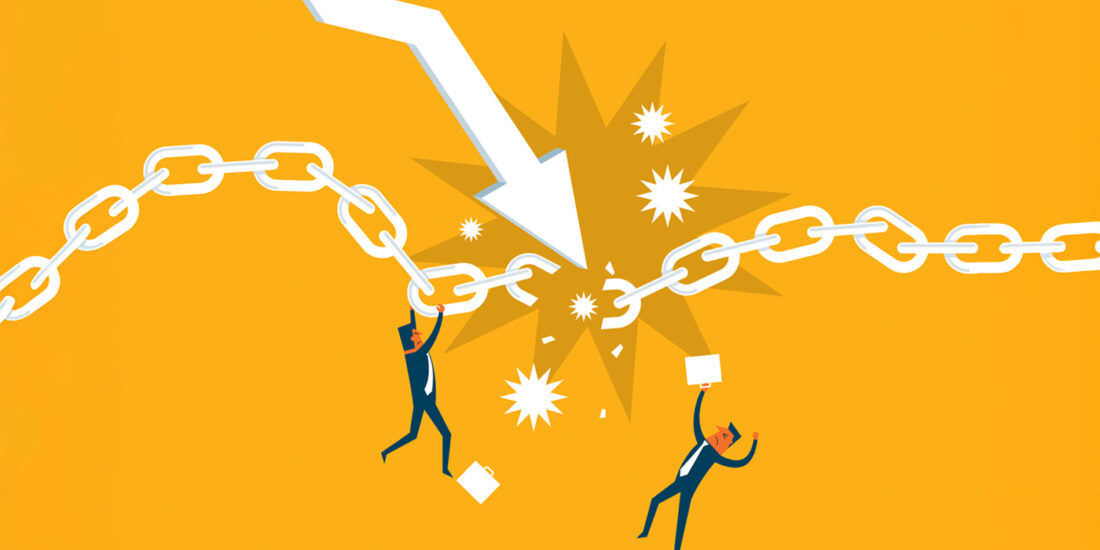Addiction in the Family Business: An interview with Christopher Kennedy Lawford
Addiction is a multifaceted and complex issue within families and family businesses. Those who were able to attend the 25th anniversary FFI global conference in Boston in 2011 had the unique opportunity to learn about this issue from one of the world’s foremost experts on the topic, conference keynote and member of the FFI Family Enterprise Advisory Committee, Christopher Kennedy Lawford. Beyond his compelling life story—son of Peter Lawford and Patricia Kennedy (sister to John F. Kennedy), growing up surrounded by celebrity and privilege Chris has used his impressive professional background (actor, producer, lawyer, clinical psychologist), along with his own struggle with addiction, as a platform to open dialog and research on this disease. An advocate and active voice for addiction, in 2011 Chris Kennedy Lawford was named Goodwill Ambassador for the United Nations Office on Drugs & Crime. Author of two New York Times bestsellers, Symptoms of Withdrawal (2005) and Moments of Clarity (2009), Chris has a new book entitled Recover to Live: Kick Any Habit, Manage Any Addiction, which examines the “seven toxic compulsions—sex, drugs, food, gambling, alcohol, hoarding, and tobacco.”
Last week, The Practitioner caught up with Chris on his US book tour. James Olan Hutcheson, an FFI Fellow and advocate on this issue, was able to sit down with Chris to discuss the book, addiction, recovery methods and the impact on family businesses.
Enjoy the interview, presented below in its entirety. Please share this valuable information with colleagues, clients, friends, and family.

Interview with Christopher Kennedy Lawford
Friday, January 11, 2013
James Olan Hutcheson:
It is a pleasure to have you with the FFI Practitioner today to discuss your newest book on addiction, Recover to Live. You’ve written widely and influentially on the topic of addiction, but why do we need another book on addiction? What prompted you to write Recover to Live?
Christopher Kennedy Lawford:
I wrote Recover to Live because I understand how difficult it is for people confronting this illness to find answers that are credible and evidenced-based. Many “experts” still don’t view addiction as a disease and sell cures that simply don’t work. People need answers and they don’t really know where to find them. I was fortunate, thanks to my family (my Uncle Teddy’s whole life was devoted to health care), to have access to the best care when I was struggling with this thing. Today, I work with Carron Treatment Centers and others (like the Office of National Drug Control Policy and the UN) and now have access to the best and brightest in the world on this topic. And I thought that it would make sense for me to put together a book interviewing 150 of the smartest people in the world about what addiction is and what it isn’t.
This is the first book that looks at this disease, not just in terms of substance addiction, but also in terms of behavioral addiction. Honestly, I had a difficult time selling the book because it takes such a broad view at addiction. But we were vindicated about 2 months into writing the book when the American Society of Addiction and Medicine came out and said that there is really no difference between a substance addiction and process addiction. There is no difference between the way cocaine reacts in your brain and the way gambling reacts in the brain. It is basically the same thing—addiction is an illness of the brain. And this is the first book that really looks at it that way.
JOH: That’s a compelling reason. As you said, many popular myths about addiction still exist. Some still think of addiction as a “weakness of the will” or the result of larger societal forces (like socioeconomic status or cultural influences). I don’t need to tell you that addiction is a highly complex issue. But, how should we understand what addiction really is and, as you say, what it isn’t?
CKL: You can’t ignore the complex influences when thinking about this disease. Biology and psychology are both at play. As you say Jim, it is a complicated issue. Just to give you an example, scientists have identified one gene that determines whether you are lactose intolerant. There are 22 genes so far that have been identified as influencing the way your body metabolizes alcohol. There is definitely a genetic piece to it. Scientists haven’t yet identified an exact “addiction” gene but we are getting much closer. Neuroscience has opened up a lot of avenues, not just for treatment—pharmacology and behavioral types of treatment— but also for new ways of understanding the disease. Recover to Live explores the science behind addiction.
For example, one of the experts interviewed in the book is a pediatric neuroscientist from UCLA named Alan Shore. He is doing research on a part of the brain that determines our relational capabilities. That part of the brain is fully developed by the time a person is 3 years old or by the time we learn to speak. Alan argues that infants who do not bond with a caregiver by the time that that part of the brain is fully developed will have relational trauma for the rest of their lives. From an addiction standpoint, that trauma will have to be medicated or treated. Looking back to 1938, Alcoholics Anonymous said the root cause of alcoholism is ineffective relations with others. So, the hard sciences are beginning to provide evidence of things that we have “known” anecdotally for years. The more the science of addiction develops, the more we can reduce the stigma and shame surrounding the issue, the more (and better) opportunities we will have for treatment and recovery.
JOH: Let me bring it back a little bit to the audience of this particular interview, the family enterprise professional. As you know Chris, family firms are subject to a wide variety of complex dynamics and disruptions, not the least of which is the challenge of addiction. In fact some of the most current research, conducted by my own firm, finds that more than half of all clients retaining a family enterprise professional already have an addiction issue present in the family. Drawing on your work and personal experiences, what can those engaged in the work of family enterprise do to confront addictions among family members and move towards recovery—in their lives as well as in their businesses? What do we do as professionals to address this issue?
CKL: It is a difficult thing to confront. There is no easy way to get past an addiction issue. As an advisor, your position in that environment is tenuous unless you have a long history with the family and they view you as more of a trusted advisor than just a consultant. And even then it is still difficult to address. When I talk to families, I talk about legacy. We think a lot about passing on financial assets, but we don’t often think about passing on genetic legacies or knowledge of genetic legacies. I think it is important for all of us to begin to educate people that these are diseases that run in families. You can do a lot for future generations by being open and honest about issues your family has faced. Letting the next generation know their health legacies, whether it is mental health or physical health, is essential. The more we are up-front about these health legacies the easier it will be to talk about, recognize in ourselves and others, and the easier it will be to confront and begin the process of recovery.
Having said that, families dealing with active and acute addiction are going to need professional help beyond what a family business advisor might be able to provide. There are plenty of people who do this kind of work and do it really well. They are the best resource to begin the process of recovery. The advisor can facilitate by bringing in a specialist, but actively engaging or intervening should not be something the advisor does.
JOH: I agree. And I would also add that simply being a family member who loves the individual suffering with addiction does not qualify you to address this on your own. So seeking professional help, whether you are an advisor or a family member, is the best prescription.
CKL: It is absolutely critical. Again, the thing that family advisors can do is to begin to talk about the legacy of addiction that they are transferring to the next generation. Advisors can be the genesis of open communication about what the family is transferring (good and bad). If it “runs in the family,” if Uncle Bill is an alcoholic or gambling addict or has another addiction, then it is worth recognizing. This is a slow process. Change is incremental. Addiction is very radioactive for a lot of people. So, I always advise going slow. But, because it touches so many other things, it is incredibly important that people who are in an advisory position begin to look at this issue of addiction. As you said Jim, 50% of your clients have an addiction issue present. It is an epidemic.
 JOH: Recover to Live is rapidly rising up the charts and becoming a bestseller. Is the book written for the professional advisor? Or, is it written for the individual in recovery?
JOH: Recover to Live is rapidly rising up the charts and becoming a bestseller. Is the book written for the professional advisor? Or, is it written for the individual in recovery?
CKL: It is written for anyone who has an interest in this illness. It is the best information on the planet today about these issues. It’s accessible for those dealing with addiction (either individually, in the family, or as professionals). It covers all of the seven toxic compulsions—sex, drugs, food, gambling, alcohol, hoarding, and tobacco. It looks like a textbook and you can approach it like a resource guide. I got a call the other day from a psychologist at the University of Washington who had been in the field for 20 years. He said that this is the best book he’d ever read on addiction and that any psychologist interested in treating any patient walking through the door should read the book. Medical schools devote only 3 days to addiction education and most doctors and psychologists don’t know much about this disease. This book will be an eye opener. So I think anybody can get something out of this book.
JOH: Addiction studies appears to have become a more robust and multidisciplinary field, in no small part thanks to your advocacy work, most recently as the Goodwill Ambassador to the United Nations on Drugs and Crime and your many years of writing and research on the topic. Understanding that Recover to Live is the latest and greatest multidisciplinary research that we have available today, what do you see for the future? Are we still based on 12 Step programs? Are drugs going to play a larger role in recovery? What is the next phase in the addiction and recovery? Where is this field headed?
CKL: That’s a great question. I think that it is open to interpretation and really sort of up in the air at this point. One of the things that has happened in the last couple of years is the introduction of pharmacological treatment. The drug Suboxone was supposed to be a short-term detox for opium withdrawal and has now turned into a more prolific kind of methadone type maintenance treatment. I wrote Recover to Live as sort of a “big chance” book. It has moderation management, harm reduction, smart recovery, 12 step work. I believe that there is room for everybody in terms of confronting their illness. When I was in my active addiction I did everything from methadone to detox to inpatient rehabilitation and then finally found recovery in 12 step rooms. I think that is the gold standard. Pharmacology is playing a big part. Behavioral therapy still plays a big part, especially considering that we now know that 50%-70% of people who present with an acute addiction issue also have a psychiatric disorder. And vice versa, those who have a psychiatric disorder also present with addiction. So, treatment is complicated. There are no easy fixes here. We have to look at everything. We have to tolerate everything. We have to be as compassionate as possible when dealing with this issue.
The biggest thing, I think, is our commitment to the issue. Addiction costs our country $600 billion dollars a year. That is three times the cost of cancer and three times what obesity is projected to cost. This is the huge public health issue. But we still don’t spend the time or the money on addiction relative to its impact. The Affordable Healthcare Act that is now being implemented is really good start for us on addiction. It requires doctors in non-specialty settings to intervene with questions about a patient’s drug and alcohol use. Many researchers think that a moment of brief intervention done by a medical professional at an early stage could prevent 20% of chronic addictions from developing. This is a big deal. The sooner we intervene in these kinds of situations the better. I hope, for the sake of those who are touched by this disease, that the future is one where people are talking about addiction—individuals, families, those in the medical community. Reducing the stigma and shame of addiction is the first building block to recovery.
JOH: Christopher Kennedy Lawford is the author of Recover to Live. We can get more information and order the book at www.christopherkennedylawford.com. Recover to Live is also available online at major booksellers as well as in the FFI Online Bookstore.
Chris, thank you very much for your time and thank you for helping to educate the readers of FFI Practitioner.
CKL: Jim, thanks. I appreciate it. And thank you for what you do.
About the Contributors :
 Christopher Kennedy Lawford spent 20 years in the film and television industries as an actor, lawyer, executive and producer. He is the author of two New York Times bestselling books, Symptoms of Withdrawal (2005) and Moments of Clarity (2009).
Christopher Kennedy Lawford spent 20 years in the film and television industries as an actor, lawyer, executive and producer. He is the author of two New York Times bestselling books, Symptoms of Withdrawal (2005) and Moments of Clarity (2009).
In recovery for more than 25 years from drug addiction, Lawford campaigns tirelessly on behalf of the recovery community in both the public and private sectors. He presently works with the United Nations, the Canadian Center on Substance Abuse, the White House Office on Drug Control Policy, and the World Health Organization. He also consults with Fortune 500 companies and numerous non-profit groups, speaking around the world on issues related to addiction, mental health, and Hepatitis C.
In 2009, California Governor Arnold Schwarzenegger appointed Lawford to the California Public Health Advisory Committee. In 2011, Lawford was named Goodwill Ambassador for the United Nations Office on Drugs & Crime to promote activities supporting drug treatment, care and recovery. He also serves as national advocacy consultant for Caron Treatment Centers.
Lawford holds a bachelor of arts degree from Tufts University, a juris doctor from Boston College Law School, and a masters certification in clinical psychology from Harvard Medical School, where he held an academic appointment as a lecturer in psychiatry.
 James Olan Hutcheson is managing partner and founder of ReGeneration Partners. An FFI Fellow, and recipient of the Richard Beckhard Practice Award, Jim has served on the board of directors and as chair of the global conference. In addition to degrees in psychology, sociology, and an MBA, Jim has received an Honorary Doctorate of Laws. Jim is a frequent speaker and has been featured in national, and international media including The New York Times, The Wall Street Journal, International Herald Tribune, CNBC, and MSNBC, among others. Jim is a past editor of Nation’s Business, Financial Planning, and BusinessWeek.com, and a contributing editor for Family Business Magazine, and Families in Business.
James Olan Hutcheson is managing partner and founder of ReGeneration Partners. An FFI Fellow, and recipient of the Richard Beckhard Practice Award, Jim has served on the board of directors and as chair of the global conference. In addition to degrees in psychology, sociology, and an MBA, Jim has received an Honorary Doctorate of Laws. Jim is a frequent speaker and has been featured in national, and international media including The New York Times, The Wall Street Journal, International Herald Tribune, CNBC, and MSNBC, among others. Jim is a past editor of Nation’s Business, Financial Planning, and BusinessWeek.com, and a contributing editor for Family Business Magazine, and Families in Business.
His books Portraits of Success: 9 Keys To Sustaining Value In Any Business (2002) and The Family Business Road Map To Peace Of Mind (2011) are available online at major booksellers, as well as in the FFI Online Bookstore.
Please share this interview using our share buttons. Next week, we bring you recaps of the latest research in the field and its applications to practitioners.
Yours in Practice,
The Practitioner





